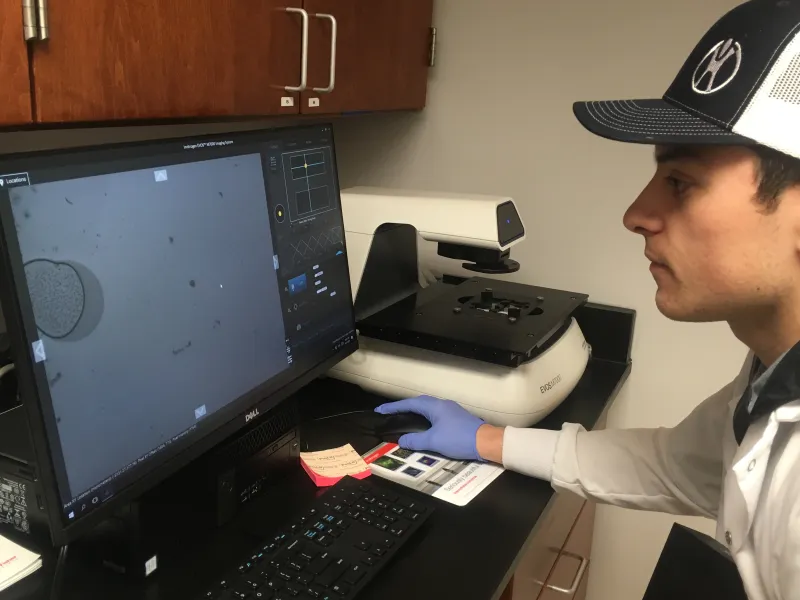The Upper Michigan Brain Tumor Center (UMBTC) has obtained a new microscope for its lab at Northern Michigan University that enables automated, high-quality fluorescence imaging. Faculty and student researchers will use the EVOS M7000 to more clearly distinguish biomarkers associated with glioblastoma, the most common and malignant type of brain tumor.
Biomarkers are molecules expressed in tumors. The presence or absence of particular biomarkers can provide information about the tumor's aggressiveness and how well a patient might respond to certain treatments.
“Biomarkers can vary among patients, even if they have the same degree of tumor,” said Amber LaCrosse, research director at the NMU lab. “Knowing the molecular makeup can lead to more effective first-line treatment options. For example, if we're planning to target Axel, an aggressive marker, but it's not actually present, that's not a treatment option we'd want to pursue. The field is moving toward individualized approaches to therapy based on patients' unique molecular signatures—knowing what each tumor's made of. Getting this new microscope to see better—both tissue and live cells in culture—is a big deal for us.”
Rob Winn, executive director of the UMBTC and dean of Arts and Sciences at NMU, said the microscope offers a dual benefit. It allows researchers in the lab to work at a higher level than before, as they image cells using fluorescent labeling and other techniques. It also enhances the educational component.
“It's clear when you're working with students and microscopes that they're not always seeing what you think they're seeing,” Winn said. “This microscope has no eyepieces; the images are projected on a monitor. So when the image appears on the screen, everyone is seeing the same thing. To be able to point things out and discuss them with students is really going to benefit the instructional side. That's a real win.”
Superior Health Foundation, which collaborates with NMU and UP Health System-Marquette on the UMBTC, contributed nearly $70,000 for the purchase of the microscope.
“We had some restricted funds in our account that were specifically designated for neuroscience and neurosurgery,” said Jim LaJoie of Superior Health Foundation. “And we thought, let's reach out to the Upper Michigan Brain Tumor Center to see if they have any equipment needs where we could invest that money. Amber said they had an interest in a cutting-edge microscope that could take us to the next level and we were happy to support that.”
The UMBTC is committed to investigating genetic, molecular and viral factors that make glioblastoma more resistant to treatment, more likely to recur and better able to evade the immune system. The lab also prepares NMU undergraduate and graduate students for careers in medicine and biomedical research. The mission of the UMBTC is the empower patients and families dealing with brain tumors through advocacy, research, education and treatment.
A major fundraiser for the center, the River Valley Bank Hope Starts Here Challenge, will be held Saturday, May 11. It features 5K, 10K and half-marathon runs, a duathlon and a leisurely walk. For more information or to register, click here.

